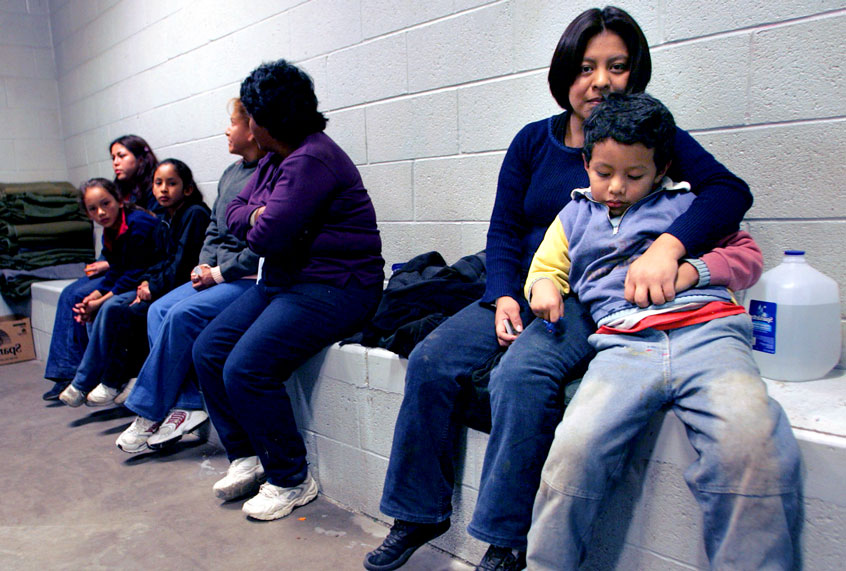The U.S. held an unprecedented 69,550 migrant children in government custody over the past year, according to new government data reported on by the Associated Press.
Some of the nearly 70,000 migrant children who were held in government custody this year — up 42 percent in this fiscal year from 2018 — have already been deported. Others have been reunited with family members across the country. Around 4,000 are still in government custody, with more arriving each week.
The data reveals that more children have been detained in the U.S. than in any other country, even though the government has acknowledged that family separations can cause significant long-term trauma to children. The number of children in government custody has grown sharply over the last two years, largely due to President Donald Trump’s aggressive efforts to arrest and detain migrants attempting to enter the country illegally.
In 2013, Australia detained 2,000 children during a surge of unauthorized maritime arrivals. In Canada, where family separations are used as a “last resort,” 155 children were detained in 2018. In the U.K., 42 migrant children were put in shelters in 2017, the AP reported, citing officials in those countries.
HHS spokesman Mark Weber told the AP that with the largest number of migrant children in the program’s history, “you must give credit to the Office of Refugee Resettlement and the shelter network staff for managing a program that was able to rapidly expand and unify the largest number of kids ever — all in an incredibly difficult environment.”
The U.S. is being sued for hundreds of millions of dollars by some families who say their children were harmed and traumatized in detention.
Earlier this month, a federal judge found that the government’s family separation policy has “caused severe mental trauma to parents and their children” and that U.S. government official were “aware of the risks associated with family separation when they implemented it.” The judge ordered the government to immediately provide mental health screenings and treatment to the thousands of families forcibly separated under the policy, which was primarily carried out in 2017 and 2018.
Trump signed an executive order ending his administration’s controversial practice of separating migrant families last spring amid mounting global outcry. But even though the policy was rolled back, hundreds of similar separations are still taking place.


